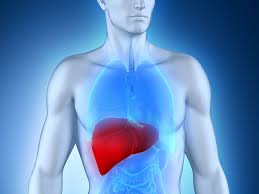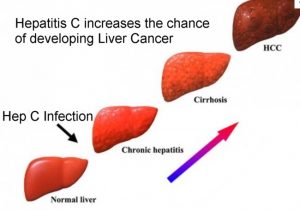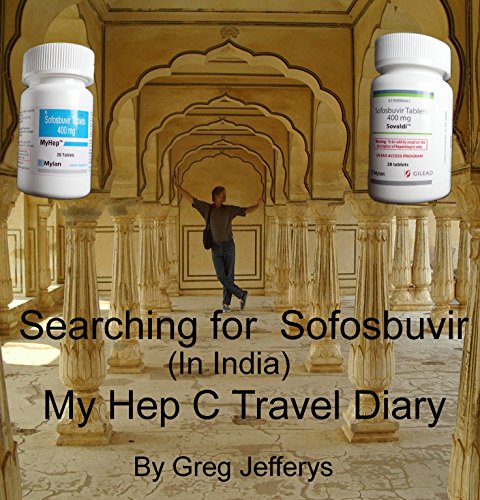Hepatitis C Blog
Greg Jefferys Hepatitis C blog deals with all the issues associated with hepatitis C
After Hep C Healthy Liver Diet
- September 4, 2023
- By Greg Jefferys
- 3 Comments

Regaining liver health after Hep C is important to regaining overall good health
After Hep C: A Healthy Liver Diet
After you have cleared the Hepatitis C virus the next step is to repair the damage done by the Hep C to your liver. Its super important to get your liver function back to normal and a healthy diet is the first step to healing your liver.
Why is a healthy liver important?
Chronic Hepatitis C causes damage to the liver and to many other part of our body. Because the liver plays a critical role in metabolizing nutrients and detoxifying the body when it is damaged many other parts of the body suffer. So when the Hep C is cured its important to get your liver, and general health, back into shape.
A good diet and healthy lifestyle is essential for maintaining a healthy liver and good general health. While there isn’t a one-size-fits-all diet for liver health, the following dietary guidelines can help support and maintain a healthy liver:
- Balanced Diet: Consume a sensible well-balanced diet that includes a variety of foods from all food groups, such as fruits, vegetables, whole grains, lean proteins, and healthy fats. White meats, such as fish and fowl are easier on your liver than red meats such as beef or pork.
- Limit Alcohol: Excessive alcohol consumption can damage the liver. If you drink alcohol, do so in moderation. It’s essential to adhere to recommended limits or avoid alcohol altogether, depending on your individual circumstances. You should not consume alcohol if you still have Hepatitis C or if you have a high level of liver fibrosis.
- Healthy Fats: Choose healthy fats, such as those found in avocados, nuts, seeds, and fatty fish like salmon. Avoid fried and processed foods.
- Fruits and Vegetables: Include plenty of variety of fruits and vegetables in your diet. They are rich in antioxidants, vitamins, and fibre, which can help protect and support liver function. Its important that your fruits and vegetables are fresh, not shipped hundreds or thousands of miles or in storage for weeks or months. Try to source food grown locally that is fresh.
- Whole Grains: When choosing your foods aim for whole grains like brown rice, quinoa, and whole wheat bread instead of refined grains. They provide more fibre and nutrients.
- Lean Proteins: Choose lean sources of protein like poultry, fish, tofu, legumes, and low-fat dairy. Limit red meat consumption and processed meats, which can be hard on the liver.
- Portion Control: Pay attention to portion sizes to avoid overeating, as excessive calorie intake can contribute to fatty liver disease. Obesity is the biggest of all barriers that will stop the liver healing.
- Limit Added Sugars: Reduce your consumption of added sugars, including sugary beverages, sweets, and processed foods. High sugar intake can lead to fatty liver disease.
- Stay Hydrated: Drink plenty of water to support overall health and help flush toxins from the body. Click this link to get more information on how much water to drink. Drinking too much water can be just as damaging as not enough water.
- Limit Salt: Excess sodium can contribute to fluid retention and liver issues. Aim to consume less salt by reducing your intake of processed and high-sodium foods.
- Herbal Teas: Certain herbal teas, like dandelion root and green tea, may have liver-protective properties. Consult with an expert before using herbal remedies. Do not use herbal supplements during Hep C treatment as they may interfere with the medication.
- Moderate Caffeine: Moderate caffeine consumption from sources like black coffee and black tea have been associated with potential liver benefits. Research has shown that black coffee helps the liver repair liver fibrosis, which is a common damage caused to the liver by Hep C. Coffee has long been recognized as having liver protective properties. Coffee appears to reduce risk of liver cancer and reduce advancement of liver fibrosis in a variety of chronic liver diseases. Importantly black coffee is best. No milk and no sugar.
- Maintain a Healthy Weight: Obesity can increase the risk of fatty liver disease and liver damage. Aim for a healthy weight through a combination of diet and exercise.
- Don’t smoke tobacco!
If you follow these tips it is possible to reverse liver cirrhosis and other damage caused by Hepatitis C. In my own case, by following these guidelines I went from F4 liver cirrhosis to F1.

Can Diet Affect Hep C, Can Hep C Cause Autoimmune Hepatitis, Chronic Hep C Diet, Does Hep C Affect The Liver, Does Hep C Cause Loss Of Appetite, Does Hep C Cause Weight Loss, Foods To Avoid With Hep C, Hep C Diet, Hep C Diet And Nutrition, Hep C Diet Healing, Hep C Nutrition Therapy, Will Hep C Make You Lose Weight
- Post Categories
- Uncategorized
Greg Jefferys
Tags
3 Comments
Leave a Comment Cancel Reply
Join my Hep C Support Group.
Talk privately to other people
with Hep C in a closed group.
Disclaimer
Greg Jefferys’ blog is provided for informational purposes and is not intended as Medical advice, diagnosis, or treatment.
Whilst Greg Jefferys is doing a PhD it is not in medicine. Any advice offered is offered in good faith and based on an extensive general knowledge of Hepatitis C and access to generic Hepatitis medicines Greg Jefferys has acquired through his work as an advocate and activist
The Hep C Buyers Club is not a company or corporate entity but simply a loose structure intended to offer a free information to people with Hepatitis C
Other Books
Click here for other books by Greg Jefferys.
for Kindle
I have converted this diary into a kindle book for folk who might like it in that format. I have added a lot more depth than the original diary contains, it’s more of a complete story in book format. I have priced it as low as Kindle allows me to @ 99 cents. If you are interested just click here to go to the Kindle page.
Recent Posts
-
Hepatitis C Treatment and Liver Cancer June 19, 2024
-
Motivate C a Profitable Hep C Initiative April 29, 2024
-
After Hep C Healthy Liver Diet September 4, 2023
-
Fear of Hep C Treatment April 14, 2023
-
My Letter to Joe Biden March 2, 2023
-
Dormant Hepatitis C November 27, 2022
-
How Much water to drink during Hep C treatment October 13, 2022
-
Hep C and Peripheral Neuropathy August 21, 2022
-
Fatigue Brain Fog and Hepatitis C August 18, 2022
-
Hep C and Liver Cancer May 18, 2022
Contact Us
If you have any questions please reach out by email, or complete the below form.
Greg Jefferys3439 Channel Highway, Woodbridge, Tasmania, 7161.
Email: gregjefferys@outlook.com



Very informative
You’re great Greg
Hey Mr Jeffreys I was diagnosed with Cirrhosis from hep c was wondering if it’s really true that it could be reversed and how long would it take,Im seeing alot of things on Google saying once it’s Cirrhosis it can’t be reversed.Is it true you and others had Cirrhosis and was completely healed,I’m at the compensated stage and finished my eplusa treatment can I still be saved, really would appreciate a response.Rueben brewer.